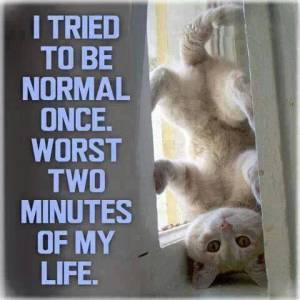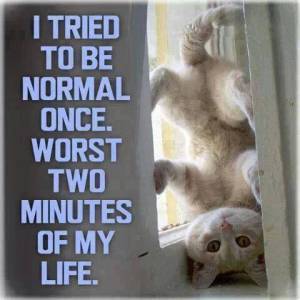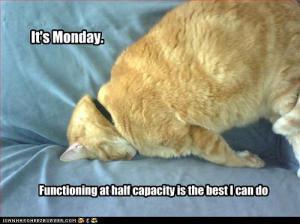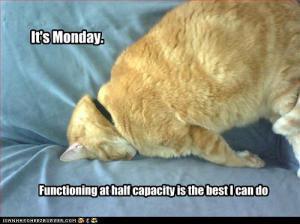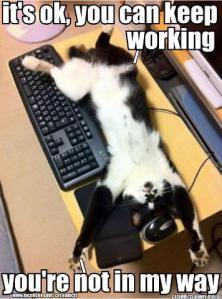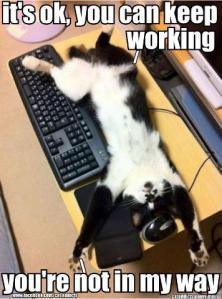Valerie Parv's Blog, page 9
November 29, 2014
First Monday Mentoring – 4 invisible gifts every writer needs to place under their tree for 2015
It’s First Monday of the month again, your invitation to ask questions and discuss any aspect of writing that concerns you, whether to do with publishers, writing craft, or the rarely talked about demons besetting every writer.
To start, here’s a question that arose this week. How can you be sure to have a productive 2015? The answer is to place these invisible gifts under your tree.
1. Faith in yourself
Self-doubt is one of the demons haunting many writers. Sadly, the ones least likely to doubt themselves can be those least talented. The rest struggle along, wondering if our success to date has been a fluke.
An award-winning writer I know said in a speech that she believed her publishers would knock on her
door one day and demand their money back. Of course her success wasn’t a fluke. She wrote stories millions of people wanted to read.
The best way to deal with self-doubt is to be what a motivational speaker calls part Clint Eastwood and part Mr Spock – hard-nosed and logical. Do you have a body of work you’re proud of, even if it’s not yet published? Do you write on most days? Do you study your craft through books, a writing group or online? Do you finish what you start? By all hard-nosed, logical reasoning, you are a writer and self-doubt has no place under your tree. Replace it with faith in yourself.
2. Determination
This is the twin of faith. Determination…okay, sometimes called stubbornness…keeps you going when the going gets tough. Critique partners can tell you the work isn’t there yet; agents and publishers can reject you. You can stare at your writing and wonder why you ever thought you could do this.
Determination is what makes you stay at the keyboard and keep writing. You are in love with your characters and can’t wait to tell their stories. You know you still have plenty to learn about writing craft, but the only way to learn it is by doing. Determination knows that. Fill a huge stocking with this vital quality, and hang it by the chimney with care. Or at the foot of your bed. But make sure it’s there to unwrap any time you need it.
3. Excitement
Every child knows about excitement. It’s what has them scrambling awake before dawn to see their gifts. You can admire your gifts, too, even though they’re invisible. Talent is your gift and you’ve known it was there since you were a child yourself.
People ask me when I became a writer. You know, I honestly can’t remember. I wrote before I knew what a writer was. I thought everyone made up stories to entertain their siblings on the way to school, or lay in bed at night rewriting the ending of a movie because it didn’t end the way I thought it should.
Sometimes those stories turn into real, publishable work. But first, the excitement must be there before I can spend the weeks or months needed to turn an idea into a story for others to read. Excitement is what gets me out of bed in the early hours of the morning, eager to share the wonderful people and events in my head.
Right now I’m hatching a series about three people who didn’t exist until they started talking to me. So far they’ve told me their names, their histories and how they want to relate to each other and I’m savouring every minute of this stage. Anything is possible. It doesn’t even qualify as work. Soon, however, I’ll have to start the real work of getting words down. For that, you need fuel. Excitement is your fuel.
4. Resilience
Writing a book is a marathon, not a sprint. You need to train yourself to survive the long haul of writing and rewriting your words until they transmit the message (story) to your readers as accurately as possible. The story will always fall short of the visions in your head. Expect this. Tell yourself it doesn’t matter. What matters is getting the words down then editing them until they’re close to your vision.
Expect to fail in other ways, too. More books are rejected by publishers than ever see the light of day. Not all are bad books. Sometimes they’re similar to something else the editor has in production, or not right for the market at that time. Even if you publish your work yourself, there are no guarantees. Indie publishing is not only acceptable these days, it’s eating into the numbers of manuscripts publishers are seeing, and they’re fretting over this.
Nor are all indie publishers beginners. Many are hugely successful with traditional publishers, and see self-publishing as a way to retain control of their work and incomes.
You still need to package up a huge does of resilience and place that under your tree to open when your faith and determination run low. Successful writers need skill, persistence and a little luck to succeed. As NASA says, failure is not an option. You only fail if you quit. Don’t quit.
Can you think of other essential gifts writers should give themselves these holidays? Share them with us in the comments below. I moderate comments to avoid spam, but if you want your comment to appear right away, click on the “sign me up” box at right to subscribe. I don’t share your details with anyone.
Happy holidays to all, and to all – a good write.
Valerie
on Twitter @ValerieParv and Facebook
See the new cover of Valerie’s Beacons book, Birthright, at http://tinyurl.com/mxtmbx6
Check out Valerie’s online course, Free the Writer in You
at http://valerieparv.com/course.html

November 1, 2014
First Monday Mentoring for November ��� 3 spooky things characters do that smart writers allow
It’s First Monday again, when I open this blog to your thoughts and questions to do with any aspect of writing and publishing. With Halloween just over and even the Australian shops still full of treat-sized chocolate and witchy products, I���m looking at our characters, the weird things they do to us ��� and why it���s okay.
1. Characters spring surprises
Long ago, I learned that a good character takes on a life of their own. I���ll do all the preparatory work, know their hair and eye colour, and what they want from life. Then I���ll be writing a draft and that same character will quietly let drop that they have a sister, a pet dog or an unusual hobby I didn���t know about.
Experience has shown me that this is part of my mind telling me what the story will need later on. The sibling or the hobby will turn out to be a vital part of that character���s story. I leave it in place with a side notation to check it again at the editing stage, and keep writing. Almost always, that detail will be essential to the story development.
2. Characters talk to you
A fully realised character will have their own thoughts on their world. How do you find this out? By asking them.
I learned this method from Gene Roddenberry, creator of the Star Trek universe. He took a sheet of paper – it doesn���t work as well on a screen – and drew a vertical line down the middle, creating two blank columns. On the left-hand one he wrote a question he wanted to ask the character, then wrote the character���s answer in the right-hand column.
At first this will feel forced and you���ll be aware of playing both roles, but if you persist over however many pages it takes, a spooky thing happens. The character starts to answer in their own voice, giving you insights that you hadn���t considered. Or more accurately, weren���t aware of knowing.
This process isn���t metaphysical. It���s your own subconscious revealing itself through the character, but it feels as if you really are in touch with this person, and you���ll find out far more than their physical description. Sometimes ���their��� insights will astonish you.
Gene Roddenberry said he used this process to create the logical Vulcan, Mr. Spock, so it���s definitely worth a try.
One caveat ��� writing is hard work. It���s common for a minor character to insist that you write their story as well, and you may start to imagine a series featuring all these people. Whether or not this ever happens doesn���t matter. The competing ideas are your brain���s way of dodging the work ahead. Make notes on whatever comes up, then finish the current book.
3. Characters know what they want
Woe betide the author who doesn���t listen. You���ll end up with cardboard-cut-out people who do your bidding but have no life of their own.
In my Beacons science-fiction series, my three main characters are all aliens living on Earth. Elaine Lovell is a Watcher who can see whatever she chooses, wherever it may be. Her day job is media psychic. Garrett Luken is the beacon���s Listener, a former US Air Force pilot, now a best-selling sci-fi writer. Adam Desai is the team���s Messenger, a scientific genius who doesn���t know his alien history until he meets the other two.
My romantic side wanted them all partnered by series end. Elaine was the easiest, and found herself a Hawai���ian multimillionaire. Adam could only ever love the capable governor Shana Akers, who is more than his match mentally and physically.
My problem child was Garrett, gorgeous, talented and single. In three books and two novellas, I tried matching him with several other characters and he���d have none of them. Naturally, the only woman he fell for was the one I’d considered the least likely.
No spoilers, but when Garrett did let this person into his life, I wondered why I hadn���t thought of her. He knew who he wanted; I just had to take notes.
There it is, three spooky ways your characters will ��� like Pinocchio ��� become real, if you let them. Now it’s over to you to share your experiences.
Comments are moderated to avoid spam, but if you want your post to appear right away, click on ���sign me up��� to subscribe. I don���t share your details with anyone. How do you develop characters? Do they talk back to you? How does it affect your writing?
Valerie
on Twitter @ValerieParv and Facebook
See the new cover of Valerie’s Beacons book, Birthright, at http://tinyurl.com/mxtmbx6
Check out Valerie���s online course, Free the Writer in You
at http://valerieparv.com/course.html


First Monday Mentoring for November – 3 spooky things characters do that smart writers allow
It’s First Monday again, when I open this blog to your thoughts and questions to do with any aspect of writing and publishing. With Halloween just over and even the Australian shops still full of treat-sized chocolate and witchy products, I’m looking at our characters, the weird things they do to us – and why it’s okay.
1. Characters spring surprises
Long ago, I learned that a good character takes on a life of their own. I’ll do all the preparatory work, know their hair and eye colour, and what they want from life. Then I’ll be writing a draft and that same character will quietly let drop that they have a sister, a pet dog or an unusual hobby I didn’t know about.
Experience has shown me that this is part of my mind telling me what the story will need later on. The sibling or the hobby will turn out to be a vital part of that character’s story. I leave it in place with a side notation to check it again at the editing stage, and keep writing. Almost always, that detail will be essential to the story development.
2. Characters talk to you
A fully realised character will have their own thoughts on their world. How do you find this out? By asking them.
I learned this method from Gene Roddenberry, creator of the Star Trek universe. He took a sheet of paper – it doesn’t work as well on a screen – and drew a vertical line down the middle, creating two blank columns. On the left-hand one he wrote a question he wanted to ask the character, then wrote the character’s answer in the right-hand column.
At first this will feel forced and you’ll be aware of playing both roles, but if you persist over however many pages it takes, a spooky thing happens. The character starts to answer in their own voice, giving you insights that you hadn’t considered. Or more accurately, weren’t aware of knowing.
This process isn’t metaphysical. It’s your own subconscious revealing itself through the character, but it feels as if you really are in touch with this person, and you’ll find out far more than their physical description. Sometimes “their” insights will astonish you.
Gene Roddenberry said he used this process to create the logical Vulcan, Mr. Spock, so it’s definitely worth a try.
One caveat – writing is hard work. It’s common for a minor character to insist that you write their story as well, and you may start to imagine a series featuring all these people. Whether or not this ever happens doesn’t matter. The competing ideas are your brain’s way of dodging the work ahead. Make notes on whatever comes up, then finish the current book.
3. Characters know what they want
Woe betide the author who doesn’t listen. You’ll end up with cardboard-cut-out people who do your bidding but have no life of their own.
In my Beacons science-fiction series, my three main characters are all aliens living on Earth. Elaine Lovell is a Watcher who can see whatever she chooses, wherever it may be. Her day job is media psychic. Garrett Luken is the beacon’s Listener, a former US Air Force pilot, now a best-selling sci-fi writer. Adam Desai is the team’s Messenger, a scientific genius who doesn’t know his alien history until he meets the other two.
My romantic side wanted them all partnered by series end. Elaine was the easiest, and found herself a Hawai’ian multimillionaire. Adam could only ever love the capable governor Shana Akers, who is more than his match mentally and physically.
My problem child was Garrett, gorgeous, talented and single. In three books and two novellas, I tried matching him with several other characters and he’d have none of them. Naturally, the only woman he fell for was the one I’d considered the least likely.
No spoilers, but when Garrett did let this person into his life, I wondered why I hadn’t thought of her. He knew who he wanted; I just had to take notes.
There it is, three spooky ways your characters will – like Pinocchio – become real, if you let them. Now it’s over to you to share your experiences.
Comments are moderated to avoid spam, but if you want your post to appear right away, click on “sign me up” to subscribe. I don’t share your details with anyone. How do you develop characters? Do they talk back to you? How does it affect your writing?
Valerie
on Twitter @ValerieParv and Facebook
See the new cover of Valerie’s Beacons book, Birthright, at http://tinyurl.com/mxtmbx6
Check out Valerie’s online course, Free the Writer in You
at http://valerieparv.com/course.html


October 5, 2014
First Monday Mentoring for October ��� 4 ways to declutter your writing life
It���s First Monday again, when you���re invited to ask me anything about the writing life from craft issues to working with publishers.
Right now it���s spring in Australia, when we think of freshening up our homes, possessions and gardens. This week I was asked how you can spring clean your writing life. Here are 4 sure-fire ways:
1. Let go of old, tired projects
Many writers have pet ideas and half-finished manuscripts we hope to sell ���some day.��� As you know, some day never comes. If you���ve worked and reworked an idea, chances are you���ve also drained it of what Hemingway called ���it���s juice.���
How do you know when an idea passes its use-by date? Look at the idea itself. Is it still current or has life overtaken the concept? Have the characters lost any resemblance to real people? Are you simply tired of the project? Look at the date on the pages. You may be surprised how many years have gone by while you tried to make this book work. Give it a decent burial and move on. A truly good idea will resurface in a new way, or you���ll free up your mind to take you somewhere fresh and exciting.
2. Let go of critique partners who no longer suit you
This is a tough call. When you got together as a group or online critique partnership, you were probably at the same stage. Are you now? Have you moved on while they���re still at the gunna stage ��� gunna write their best seller any day now, except they���ve been saying so for several years. On the other hand, you���ve written steadily and can see progress. You may be getting good feedback from editors and agents, perhaps had your first acceptance.
Two things can happen here. The left-behind CP may be jealous and seek to keep you at their level. Or their advice may conflict with your new editor���s. Can you stay friends with your CP or group while acknowledging that your work has moved on? Of course, if you���re the gunna, all the above applies in reverse.
3. Be honest with yourself about what you want from writing
If you���ve told friends, family and co-workers that you���re writing a book, do you feel obligated to keep going? Do you watch them having a life and feel jealous because every hour outside your day job is spent writing, thinking about writing or on some related activity? These shackles are entirely optional.
Why not take some time away from writing to test your commitment? This works as mental decluttering, and can make a huge difference to your words. Either you���ll find that you enjoy exploring other interests, or you���ll miss the act of storytelling so much that it feels like a physical loss. As I���ve said here before, writers write. We can no more stop spinning stories than we can give up breathing. Taking time out, maybe doing some real-life spring cleaning, will tell you what you want from writing. You���ll return to your projects with fresh ideas and hopes, or at the least, with a nice clean house.
4. Stay current with your writing
The publishing world is changing before our eyes. If you���re clinging to outdated writing methods and content, you may need to declutter this area of your life. Step away from your projects and take a big-picture look at where you are. Are you writing what you think the market wants? Life is short. Should you move on to that project you���ve always wanted to try, but were afraid wouldn���t sell?
Indie publishing, once derided as vanity publishing, is today���s big thing and getting bigger. Bestselling writers are reinventing themselves as hybrid authors, published by both traditional houses and under their own imprints. Others are going small-press to keep more control over their work.
The only book worth writing is the one that sings to you, keeps you awake at night and won���t let you go. If your pet book doesn���t grab traditional publishers, can you publish it yourself? Look up indie publishing, Smashwords, Amazon and the like to see what���s out there. You will need to pay for professional editing and a first-rate cover, as well as do tons of promotion including social media to give your book a real chance of success but after that, the sky���s the limit.
What is clutter to you? How do you manage it in your writing life? Comments are moderated to avoid spam. Click on ���sign me up��� at right if you want your comment to appear right away. I don���t share your email details with anyone. Questions? Thoughts? It’s over to you now.
Valerie
on Twitter @ValerieParv and Facebook
See the new cover of Valerie’s latest book, Birthright at http://tinyurl.com/mxtmbx6
Check out Valerie���s online course, Free the Writer in You
at http://valerieparv.com/course.html


First Monday Mentoring for October – 4 ways to declutter your writing life
It’s First Monday again, when you’re invited to ask me anything about the writing life from craft issues to working with publishers.
Right now it’s spring in Australia, when we think of freshening up our homes, possessions and gardens. This week I was asked how you can spring clean your writing life. Here are 4 sure-fire ways:
1. Let go of old, tired projects
Many writers have pet ideas and half-finished manuscripts we hope to sell “some day.” As you know, some day never comes. If you’ve worked and reworked an idea, chances are you’ve also drained it of what Hemingway called “it’s juice.”
How do you know when an idea passes its use-by date? Look at the idea itself. Is it still current or has life overtaken the concept? Have the characters lost any resemblance to real people? Are you simply tired of the project? Look at the date on the pages. You may be surprised how many years have gone by while you tried to make this book work. Give it a decent burial and move on. A truly good idea will resurface in a new way, or you’ll free up your mind to take you somewhere fresh and exciting.
2. Let go of critique partners who no longer suit you
This is a tough call. When you got together as a group or online critique partnership, you were probably at the same stage. Are you now? Have you moved on while they’re still at the gunna stage – gunna write their best seller any day now, except they’ve been saying so for several years. On the other hand, you’ve written steadily and can see progress. You may be getting good feedback from editors and agents, perhaps had your first acceptance.
Two things can happen here. The left-behind CP may be jealous and seek to keep you at their level. Or their advice may conflict with your new editor’s. Can you stay friends with your CP or group while acknowledging that your work has moved on? Of course, if you’re the gunna, all the above applies in reverse.
3. Be honest with yourself about what you want from writing
If you’ve told friends, family and co-workers that you’re writing a book, do you feel obligated to keep going? Do you watch them having a life and feel jealous because every hour outside your day job is spent writing, thinking about writing or on some related activity? These shackles are entirely optional.
Why not take some time away from writing to test your commitment? This works as mental decluttering, and can make a huge difference to your words. Either you’ll find that you enjoy exploring other interests, or you’ll miss the act of storytelling so much that it feels like a physical loss. As I’ve said here before, writers write. We can no more stop spinning stories than we can give up breathing. Taking time out, maybe doing some real-life spring cleaning, will tell you what you want from writing. You’ll return to your projects with fresh ideas and hopes, or at the least, with a nice clean house.
4. Stay current with your writing
The publishing world is changing before our eyes. If you’re clinging to outdated writing methods and content, you may need to declutter this area of your life. Step away from your projects and take a big-picture look at where you are. Are you writing what you think the market wants? Life is short. Should you move on to that project you’ve always wanted to try, but were afraid wouldn’t sell?
Indie publishing, once derided as vanity publishing, is today’s big thing and getting bigger. Bestselling writers are reinventing themselves as hybrid authors, published by both traditional houses and under their own imprints. Others are going small-press to keep more control over their work.
The only book worth writing is the one that sings to you, keeps you awake at night and won’t let you go. If your pet book doesn’t grab traditional publishers, can you publish it yourself? Look up indie publishing, Smashwords, Amazon and the like to see what’s out there. You will need to pay for professional editing and a first-rate cover, as well as do tons of promotion including social media to give your book a real chance of success but after that, the sky’s the limit.
What is clutter to you? How do you manage it in your writing life? Comments are moderated to avoid spam. Click on “sign me up” at right if you want your comment to appear right away. I don’t share your email details with anyone. Questions? Thoughts? It’s over to you now.
Valerie
on Twitter @ValerieParv and Facebook
See the new cover of Valerie’s latest book, Birthright at http://tinyurl.com/mxtmbx6
Check out Valerie’s online course, Free the Writer in You
at http://valerieparv.com/course.html


August 31, 2014
First Monday Mentoring for September ��� tracking down Scribblopithecus, the writing breed
Welcome. It���s first Monday again, when I answer questions about any aspect of the writing life.
Recently I attended the national conference of Romance Writers of Australia, one of the largest gatherings of writers in the country. Headliners included New York Times��� best-sellers, publishers, agents and writers of all kinds. I presented a workshop on drawing readers into your fictional world.
In the breaks, talk ranged around contracts, submissions and other professional concerns, but also about lesser-known aspects such as the courage needed to write, and how hard it is to diet in such an unpredictable business. This made me think it was time to look at what this crazy business really means.
If David Attenborough wanted to make one of his celebrated documentaries about writers, where would he start? Would he find us in herds like gazelle, or stalking alone like tigers. Would we be fearful or confronting? Do we use protective coloration or can you spot the breed from a distance?
Confusingly, the answer to all the above would be yes. Writers ��� call us Scribblopithecus – do gather in herds such as the RWA conference. But more commonly, they hole up in their writing caves, struggling to deal with the real world.
Protective coloration goes by the name of jammies, short for pyjamas, the species��� unofficial uniform. In writing mode, Scribblopithecus can stay in this camouflage for days.
While Scribblopithecus doesn���t actually hibernate, they frequently enter a torpor, a state where they are unresponsive to family and friends, reluctant to initiate communication, and focused entirely on their internal world.
Locating Scribblopithecus is challenging because their habitats are so varied. You find them in every country of the world, existing like cuckoos in a range of settings known as ���day jobs.��� In these, you may be hard-pressed to spot the writer, so well do they disguise themselves. They���re wonderful mimics, copying the calls and behavior of their day-job counterparts.
But in their natural surroundings they spend hours mesmerized by computer screens and tablets on which they make their characteristic scratchy markings. They���re fussy, though. The markings must be just so, or they will be removed and Scribblopithecus will start over, sometimes dozens of times.
Despite this preoccupation, Scribblopithecus also collects objects called notebooks, the more stylish the better. They seldom defile notebooks with scratchings, but will treasure and fondle them as their collection grows. An environment such as Office Works or Kikki.K can induce an ecstasy state as the species rushes to acquire every object around them.
Scribblopithecus is an omnivore but has a particular fondness for chocolate, despite its effect on their generally sedentary lifestyle. If anyone raids their stash, they can become aggressive, although few specimens engage in physical confrontation.
Interpreting their scratchings can be confusing. The amount of mayhem, death and destruction represented can lead one to assume that aggression is a natural trait. In fact, Scribblopithecus tends toward shyness, preferring to communicate via its screens rather than face to face. Facebook, Pinterest, Instagram and Twitter are their natural homes and #amwriting is one of the latter���s more distinctive calls.
So what is to be concluded about this species? No two are alike, they alternate between herd and solitary behaviour, experience long periods of torpor and express their aggression passively, through their scratchings. They are also an enduring species, their scratchings being found on cave walls throughout the ancient world.
Should you encounter Scribblopithecus, it���s advisable to offer chocolate and back slowly away lest you find yourself represented in their scratchings and killed off in an unpleasant manner. This symbolic violence is characteristic, along with talking to themselves, mock aggression when they wish to be solitary, and a complete lack of time sense.
It���s safest not to try to placate an aroused specimen. Misuse of apostrophes and terminology such as, ���there, they���re, their��� has been known to induce an attack frenzy which few outsiders have survived.
So there you have it. Have you met Scribblopithecus? Are you one of the species yourself? Please leave a comment here, moderated unless you click Sign Me Up at right. Or better still, leave chocolate to avoid being killed symbolically.
Valerie
http://www.valerieparv.com
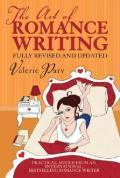
on Twitter @ValerieParv and Facebook
Check out Valerie’s online course, Free the Writer in You
at http://valerieparv.com/course.html


First Monday Mentoring for September – tracking down Scribblopithecus, the writing breed
Welcome. It’s first Monday again, when I answer questions about any aspect of the writing life.
Recently I attended the national conference of Romance Writers of Australia, one of the largest gatherings of writers in the country. Headliners included New York Times’ best-sellers, publishers, agents and writers of all kinds. I presented a workshop on drawing readers into your fictional world.
In the breaks, talk ranged around contracts, submissions and other professional concerns, but also about lesser-known aspects such as the courage needed to write, and how hard it is to diet in such an unpredictable business. This made me think it was time to look at what this crazy business really means.
If David Attenborough wanted to make one of his celebrated documentaries about writers, where would he start? Would he find us in herds like gazelle, or stalking alone like tigers. Would we be fearful or confronting? Do we use protective coloration or can you spot the breed from a distance?
Confusingly, the answer to all the above would be yes. Writers – call us Scribblopithecus – do gather in herds such as the RWA conference. But more commonly, they hole up in their writing caves, struggling to deal with the real world.
Protective coloration goes by the name of jammies, short for pyjamas, the species’ unofficial uniform. In writing mode, Scribblopithecus can stay in this camouflage for days.
While Scribblopithecus doesn’t actually hibernate, they frequently enter a torpor, a state where they are unresponsive to family and friends, reluctant to initiate communication, and focused entirely on their internal world.
Locating Scribblopithecus is challenging because their habitats are so varied. You find them in every country of the world, existing like cuckoos in a range of settings known as “day jobs.” In these, you may be hard-pressed to spot the writer, so well do they disguise themselves. They’re wonderful mimics, copying the calls and behavior of their day-job counterparts.
But in their natural surroundings they spend hours mesmerized by computer screens and tablets on which they make their characteristic scratchy markings. They’re fussy, though. The markings must be just so, or they will be removed and Scribblopithecus will start over, sometimes dozens of times.
Despite this preoccupation, Scribblopithecus also collects objects called notebooks, the more stylish the better. They seldom defile notebooks with scratchings, but will treasure and fondle them as their collection grows. An environment such as Office Works or Kikki.K can induce an ecstasy state as the species rushes to acquire every object around them.
Scribblopithecus is an omnivore but has a particular fondness for chocolate, despite its effect on their generally sedentary lifestyle. If anyone raids their stash, they can become aggressive, although few specimens engage in physical confrontation.
Interpreting their scratchings can be confusing. The amount of mayhem, death and destruction represented can lead one to assume that aggression is a natural trait. In fact, Scribblopithecus tends toward shyness, preferring to communicate via its screens rather than face to face. Facebook, Pinterest, Instagram and Twitter are their natural homes and #amwriting is one of the latter’s more distinctive calls.
So what is to be concluded about this species? No two are alike, they alternate between herd and solitary behaviour, experience long periods of torpor and express their aggression passively, through their scratchings. They are also an enduring species, their scratchings being found on cave walls throughout the ancient world.
Should you encounter Scribblopithecus, it’s advisable to offer chocolate and back slowly away lest you find yourself represented in their scratchings and killed off in an unpleasant manner. This symbolic violence is characteristic, along with talking to themselves, mock aggression when they wish to be solitary, and a complete lack of time sense.
It’s safest not to try to placate an aroused specimen. Misuse of apostrophes and terminology such as, “there, they’re, their” has been known to induce an attack frenzy which few outsiders have survived.
So there you have it. Have you met Scribblopithecus? Are you one of the species yourself? Please leave a comment here, moderated unless you click Sign Me Up at right. Or better still, leave chocolate to avoid being killed symbolically.
Valerie
http://www.valerieparv.com
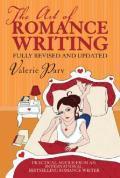
on Twitter @ValerieParv and Facebook
Check out Valerie’s online course, Free the Writer in You
at http://valerieparv.com/course.html


August 3, 2014
First Monday Mentoring for August ��� why writing ���as soon as������ won���t get your work done
Welcome to the first Monday in August when I open this blog to your questions about writing. They can be on creative issues or business, such as dealing with agents, editors and publishers, or anything to do with the writing life.
Next week I’m presenting a workshop at the Romance Writers of Australia annual conference in Sydney, and I���m bound to come across one or more writers who intend to start writing ���as soon as������ I don���t expect to be reading their books any time soon if at all, and here are three reasons why.
1. ���As soon as������ never comes
What these writers mean is they will write as soon as everything in their life is under control. And guess what? Life is never that co-operative. If you truly want to write, you need to start now, no matter what state your life may be in.
Writers are good at what Oscar-winning screenwriter, William Goldman, calls, ���putting off doomsday.��� Yes, writing is hard. But it will never get any easier while you tap dance around the process.
2. You will always have an excuse not to write
Do you recognise any of these? I���ll write when:
I have more time
I know what I want to write about (you find out by writing)
The weather is not so hot/cold.
Christmas/New Year/School holidays are over
I finish my research
I���ve defrosted the fridge
The world becomes perfect
Nobody ever has all the time, money or clear head space to start writing. Some of the most successful books were written under the most difficult conditions. I���ve written while moving house, when family members were sick, and when writing was the last thing I wanted to do. Writers write.
3. Writing is like housework. It expands to fit the time you have.
A meme going around the internet says that we get the most housework done in the five minutes before unexpected guests drop in. The same can be said of writing. Have you noticed how you can fiddle around all day trying to get something written. Then as soon as you know you have to be somewhere else at a set time, the words seem to flow?
If only you didn���t have to leave now.
This is your creative brain tricking you into thinking the writing is suddenly easier, knowing perfectly well that you have no choice but to leave it soon.
One solution is to pretend you have to leave the desk an hour or more before you actually do. If this spurs your writing brain, you���ll get as much done as if you���d been there all day.
Another trick is to set a kitchen timer. Tell yourself you���ll write for the next thirty minutes then you can stop. But don���t stare at the blank screen. Write something. Write garbage. But write words. This act of starting is almost magical, making it easier to keep going. You may not even notice when the timer goes off because you���re already caught up. And if you are ready to stop by then, at least you���ve put in a solid thirty minutes at your chosen task.
Remember, the world doesn���t care whether or not you write. You are the one who���ll feel you���ve let yourself down by not writing the project burning inside you. And unless the words are burning inside you, you may never write at all.
Set deadlines for yourself. Even writing one page a day (about 250 words) every day for five days a week will give you a 65,000 word manuscript ��� the length of a genre novel ��� by the end of a year. And that���s with weekends off.
How do you get past the ���as soon as������ challenge? Comment using the box below. I moderate posts to avoid spam. If you want your comment to appear right away, sign up using the button at lower right. I don���t share your email addresses with anyone. Happy writing.
Valerie

on Twitter @ValerieParv and Facebook
Read some reviews of Valerie’s first Beacons novel, Birthright, at http://www.valerieparv.com/birthright.html


First Monday Mentoring for August – why writing “as soon as…” won’t get your work done
Welcome to the first Monday in August when I open this blog to your questions about writing. They can be on creative issues or business, such as dealing with agents, editors and publishers, or anything to do with the writing life.
Next week I’m presenting a workshop at the Romance Writers of Australia annual conference in Sydney, and I’m bound to come across one or more writers who intend to start writing “as soon as…” I don’t expect to be reading their books any time soon if at all, and here are three reasons why.
1. “As soon as…” never comes
What these writers mean is they will write as soon as everything in their life is under control. And guess what? Life is never that co-operative. If you truly want to write, you need to start now, no matter what state your life may be in.
Writers are good at what Oscar-winning screenwriter, William Goldman, calls, “putting off doomsday.” Yes, writing is hard. But it will never get any easier while you tap dance around the process.
2. You will always have an excuse not to write
Do you recognise any of these? I’ll write when:
I have more time
I know what I want to write about (you find out by writing)
The weather is not so hot/cold.
Christmas/New Year/School holidays are over
I finish my research
I’ve defrosted the fridge
The world becomes perfect
Nobody ever has all the time, money or clear head space to start writing. Some of the most successful books were written under the most difficult conditions. I’ve written while moving house, when family members were sick, and when writing was the last thing I wanted to do. Writers write.
3. Writing is like housework. It expands to fit the time you have.
A meme going around the internet says that we get the most housework done in the five minutes before unexpected guests drop in. The same can be said of writing. Have you noticed how you can fiddle around all day trying to get something written. Then as soon as you know you have to be somewhere else at a set time, the words seem to flow?
If only you didn’t have to leave now.
This is your creative brain tricking you into thinking the writing is suddenly easier, knowing perfectly well that you have no choice but to leave it soon.
One solution is to pretend you have to leave the desk an hour or more before you actually do. If this spurs your writing brain, you’ll get as much done as if you’d been there all day.
Another trick is to set a kitchen timer. Tell yourself you’ll write for the next thirty minutes then you can stop. But don’t stare at the blank screen. Write something. Write garbage. But write words. This act of starting is almost magical, making it easier to keep going. You may not even notice when the timer goes off because you’re already caught up. And if you are ready to stop by then, at least you’ve put in a solid thirty minutes at your chosen task.
Remember, the world doesn’t care whether or not you write. You are the one who’ll feel you’ve let yourself down by not writing the project burning inside you. And unless the words are burning inside you, you may never write at all.
Set deadlines for yourself. Even writing one page a day (about 250 words) every day for five days a week will give you a 65,000 word manuscript – the length of a genre novel – by the end of a year. And that’s with weekends off.
How do you get past the “as soon as…” challenge? Comment using the box below. I moderate posts to avoid spam. If you want your comment to appear right away, sign up using the button at lower right. I don’t share your email addresses with anyone. Happy writing.
Valerie

on Twitter @ValerieParv and Facebook
Read some reviews of Valerie’s first Beacons novel, Birthright, at http://www.valerieparv.com/birthright.html


July 5, 2014
First Monday Mentoring for July ��� 4 things to do after you write ���the end���
It���s the first Monday in July, when I open this blog to your questions about writing. They can be on creative, craft or business matters. For starters, here���s a common question: what happens after you finish a book?
As I write this, I���m in the best possible place ��� at the end of a new book. Even more importantly, I���m at the end of a 300,000 word trilogy, my Beacons series for Corvallis Press, Oregon.
As of last night, all the tales have been told, the loose endings wrapped up, and the big finish I wanted for the series is definitely there.
Fittingly, it���s also just after the Fourth of July for my American friends. Although I���m in Australia, my book had fireworks and lots of celebration. As it should be. As suspense writer, Lawrence Block, put it in his excellent book, Writing the Novel from Plot to Print, no one brings your manuscript a squeaky toy, as they do when a baby is born. More often, you finish in a haze of exhaustion and surrounded by catch-up work screaming to be done.
Yet writing ���the end��� doesn���t mean the book is truly finished. There���s anything from a few months to a few years��� worth of work remaining. Sometimes a book is never done. Among the 83 books I���ve written, one still niggles because of a glitch in the opening chapter.
The title is among my most popular, although no reader has noticed the issue and I���ve had no emails, but the niggle bothers me to this day. I���m in good company. Hemingway was said to hang around the presses as a new book came off, wanting to make changes even at that stage.
So what are the four things you need to do after writing the end?
1. Step away from the manuscript.
Perfect though it looks now, there will be flaws. Sometimes continuity issues, questions, typos, facts to check, and the writing to polish. Now is not the time. Bathed in the beatific glow of having written, we’re too close to the work to be objective. Give yourself all the time you can to separate yourself from the material, then put on your editor hat and revisit the work. You���ll be astonished what sneaked through in the interim.
2. Catch up with everything you neglected
I once asked the amazing Nora Roberts what she does between books. She told me she ploughs through all the tasks that piled up while she was writing, catches up with friends and family, then she wanders around the house, wondering what people do with their time when they don���t write. And she starts writing again.
I won���t depress you with how fast she goes through this cycle, but it���s obvious from the quantity and quality of her output. Some writers need more time between books than others. Take what you need, and start writing again only when you���re ready.
3. Get a life
William Shatner made this phrase famous when he did a comedy skit on Saturday Night Live, reminding Star Trek fans that it was ���only a television show��� and they should get a life outside their favourite program. The same can be said of writing. Unless we have lives outside writing, sooner or later we end up writing about writers. You need balance in your life. I���ve seen the areas recommended as work, family, spiritual and personal wellbeing. Between books is a good time to assess where your life is and what needs more attention.
4. Start dreaming
Most writers have more ideas than we know what to do with. Between books is the perfect time to let your imagination run wild. What book calls you to write it next? What marvelous idea fills you with excitement? It isn���t enough to start writing because you feel you must, or you���ve goofed off long enough. Your idea should drag you to the computer, desperate to capture the lightning. Play with your ideas. Read, think, explore, scribble notes. Scribble more notes. When the scribbling won���t stop, you���re ready to start again.
What do you do between projects? How do you know when a new book is ready for attention? Comment using the box below. I moderate comments to avoid spam. If you want your comment to appear right away, sign up using the button at lower right. I don���t share your email addresses with anyone.
Meanwhile, I have a life to catch up on. Happy writing.
Valerie

on Twitter @ValerieParv and Facebook
Read some reviews of Valerie’s first Beacons novel, Birthright, at http://www.valerieparv.com/birthright.html


Valerie Parv's Blog
- Valerie Parv's profile
- 30 followers




